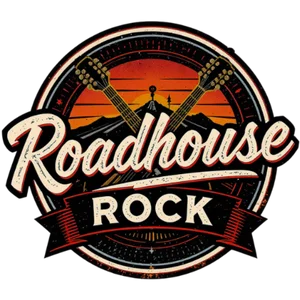Rock music is generally traced back to the 1950s, but classic rock had its breakthrough in the 1970s and 1980s. While Elvis Presley is often called the King of Rock and Roll, rock music was actually created by Black Americans. American singer and guitarist Chuck Berry is often referred to as the Father of Rock and Roll.
The genre is derived from several other genres, including rhythm and blues, and has continued to evolve throughout the decades. However, the 1970s and 1980s were some of the biggest times for rock, forming the genre now known as classic rock.
Like all music, rock evolved throughout the decades, finding its sound in the 1970s and 1980s. It differed from the music that came before it because it focused on blues and hard rock. It was also heavily influenced by the time period. While musicians like Elvis Presley and Little Richard were emerging during a more conservative period in American history, classic rock grew during the American counterculture that began in the 1960s and continued into the 1970s.
While there was a more conservative shift in the 1980s under President Ronald Reagan, musicians still continued to push the boundaries and rebel against social norms. Classic rock is also believed to have descended from album-oriented rock, evolving into heavy metal by the end of the 1980s. Rock also progressed significantly in the 1980s due to new technology like synthesizers and drum machines. The introduction of MTV, and thus the MTV Generation, in 1981 also played a major role in the evolution of all genres.
Another element that contributed to rock’s success in the 1970s and 1980s was the iconic vocalists who led classic rock bands. From Queen’s Freddie Mercury to Guns N’ Roses’ Axl Rose, classic rock bands’ lead singers had an electric presence that set them apart from the bands that came before them.
As time passed, classic rock faded. While the rock genre still continues today, appearing in various forms like pop-rock and indie rock, society likely won’t see another era like the 1970s and 1980s classic rock period. Classic rock evolved into punk and grunge music in the 1990s and has continued shifting since then. Rock was overtaken by bands like Nirvana, Green Day, Blink-182, and My Chemical Romance in the 1990s and 2000s.
Women also began to make their mark in the genre, with Kathleen Hanna forming Bikini Kill in the 1990s and the Hayley Williams-led Paramore debuting in 2005. Rock music has not been as dominant in the 2010s or 2020s as it previously was, though bands like Italy’s Måneskin saw mainstream success in the early 2020s, as did the pop-punk singer and rapper Machine Gun Kelly. These days, TikTok plays a significant role in the music industry and has influenced the sound of all genres. However, with all the newer iterations of rock, classic rock remains the standard.
The bands that dominated the airwaves at the time still receive admiration, even from newer generations who discovered them through their parents or online. While Freddie Mercury passed away in 1991, Queen has continued to tour with singer Adam Lambert as their lead, proving society still has an appetite for classic rock. Unfortunately, with the changing world, the likelihood of new bands emerging and replicating the classic rock era of the 1970s and 1980s seems unlikely.

























